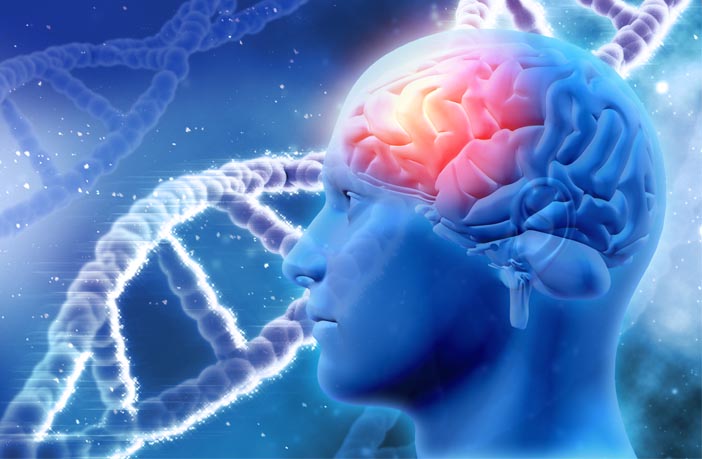Study provides new insights into the relationship between PTSD, genetics and inflammation - PsyPost

New genetic research could lead the way to more effective treatments for post-traumatic stress disorder (PTSD). The study, which appears in Brain, Behavior, and Immunity, sheds new light on how PTSD is linked to inflammatory processes.
Previous research has found that PTSD is associated with higher levels of inflammatory markers in the blood. But the mechanisms that cause PTSD patients to suffer from higher rates of chronic inflammation are still unclear.
“I was really inspired by the incredible opportunity offered by modern genetic technology to pinpoint the biological mechanisms that underlie PTSD symptoms,” said study author Heather L. Rusch, a research fellow at the National Institute of Nursing Research.
“Talk therapy and anti-depressant drugs are the first-line treatments for PTSD today; however, they don’t work for everyone, which leaves many patients without viable options. If we can learn how the disorder works on a genetic level, then we can develop more effective treatments with reduced side effects.”
“PTSD can be difficult to diagnose because it shares symptoms with other mental and physical health conditions. When PTSD is misdiagnosed, patients don’t receive the correct treatment, which can be harmful. We wanted to see what symptoms had a specific genetic link to a PTSD diagnosis, with the intention of creating diagnostic tests and treatments with enhanced precision,” Rusch explained.
For their study, the researchers compared 39 US military service members with PTSD to 27 service members without PTSD. The participants underwent a psychiatric evaluation and had blood samples drawn at the beginning of the study and again at a 12-week follow-up.
The researchers found that gene expression differences were almost entirely attributed to intrusion symptoms. They also found evidence that these PTSD symptoms were associated with higher levels of inflammation-related biomarkers.
“We found that the genetic differences between people who have PTSD and those who don’t were almost entirely attributed (98%) to the intrusion symptoms (e.g., re-experiencing the trauma, nightmares, and flashbacks), while there were no genetic differences attributed to the other PTSD symptoms such as cognitive deficits, depressed mood, and irritability, which are common among other conditions,” Rusch told PsyPost.
“This highlights the importance of focusing on the intrusion symptoms for precision medicine. Additionally, we found that intrusion symptoms were linked to increased expression of immune response genes, which normalized with symptom reduction. From an evolutionary perspective, it would make sense that a threat response would work in tandem with an immune response — something that scares you, most likely can injure you.”
The findings point toward promising new treatments, but more research is necessary.
“The biggest caveat of our study is our small sample size of predominantly male participants. We are currently replicating the study in a larger sample, using advanced technology that will allow us to investigate both known genes and explore unidentified ones,” Rusch explained.
“Ultimately, we want to use these genetic tests to predict who will develop PTSD following a traumatic event and identify the most effective treatment for a given patient. Furthermore, we plan to develop objective measures for a patient’s response to treatment — if it’s not working, we want to know early on so we can modify the treatment plan.”
People with PTSD experience increased risks of a myriad of inflammation-related conditions like cardiovascular disease and gastrointestinal disease.
“First-line treatments for PTSD target psychological symptoms; however, the presence of immune response genes suggests a need for a more comprehensive approach to address the biological consequences of trauma. It’s possible that the growing interest in alternative therapies for PTSD such as meditation, yoga, and other interventions that increase physical activity or alter dietary intake may provide benefits through their anti-inflammatory effects,” Rusch said.
“I would like to posit that this research opens a line of investigation for novel therapeutics that directly target inflammatory markers, which could result in improved psychological and biological outcomes.”
The study, “Gene expression differences in PTSD are uniquely related to the intrusion symptom cluster: a transcriptome-wide analysis in military service members“, was authored by Heather L. Rusch, Jeffrey Robinson, Sijung Yun, Nicole D. Osier, Christina Martin, Chris R. Brewin, Jessica M. Gill.
http://bit.ly/2FtLdZV

Comments
Post a Comment